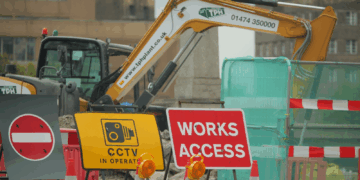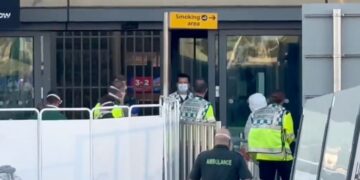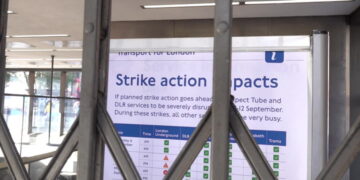Roadwork levels hit record highs in the UK, with experts partially blaming Prime Minister Boris Johnson for the increase in road traffic disruptions. According to data from the Department for Transport, roadwork levels have reached their highest point in over a decade, causing major delays and congestion on roads across the country.
The surge in roadworks is said to be due to a combination of factors, including an increase in infrastructure projects and maintenance work, as well as the ongoing impact of the COVID-19 pandemic on road networks. With more people working from home and avoiding public transport, there has been a significant rise in the number of vehicles on the road, leading to more wear and tear and the need for repairs.
Experts have pointed to the government’s handling of road infrastructure projects as a key factor in the increase in roadworks. They argue that delays in funding and planning decisions have led to a backlog of maintenance work, which is now being carried out simultaneously, causing widespread disruptions for drivers.
Critics have also highlighted Prime Minister Boris Johnson’s focus on new infrastructure projects, such as the controversial HS2 high-speed rail link, as a factor in the increase in roadworks. They argue that the government’s prioritization of large-scale projects has diverted attention and resources away from essential road maintenance, exacerbating the problem.
In response to the criticism, a spokesperson for the Department for Transport defended the government’s record on road maintenance, stating that they are investing billions of pounds in improving road networks across the UK. They also pointed to ongoing efforts to streamline the planning and delivery of roadworks, in order to minimize disruptions for drivers.
Despite these assurances, drivers continue to face significant delays and congestion due to the record levels of roadworks. As the government works to address the issue and improve road infrastructure, motorists are advised to plan their journeys carefully and allow extra time for potential disruptions.
































































